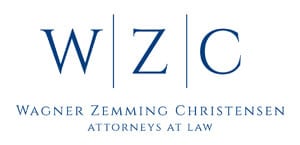Real Estate Newsletter
Real Estate Newsletter
Waste and Mismanagement
A person in possession of real estate in which another has an interest has the duty not to damage the property and to reasonably maintain and preserve the land, buildings, improvements and fixtures. By the same token, there is a duty to meet needed financial obligations. Failure to fulfill these duties may result in harm to the property that decreases the value, referred to broadly as waste.
Examples of Waste
Whether an act constitutes waste depends upon the individual circumstances, considering what use of the particular property is intended or appropriate. The legal concept of waste is largely dependant on state law, which can vary some from state to state, but generally the possessor of property has the duty to care for the property as a reasonable person would. Wrongful violation of the duty of care can be either intentional or negligent.
Examples of physical waste may include:
- Removal of timber, rock, soil or minerals
- Demolition of buildings
- Improper maintenance
- Failure to repair
Examples of financial waste may include:
- Failure to pay taxes
- Failure to maintain appropriate insurance
- Failure to pay public assessments
Depreciation in value from the usual day-to-day use of property is not ordinarily considered waste.
Persons in Possession
Persons having stewardship responsibility of real estate can have several different roles. Such a role usually involves a situation where another party has an interest in the property. Here are some typical examples:
- Mortgagors - the mortgagor (most commonly a homeowner or business owner) must take reasonable care of the real estate so as not impair the interest of the lender in the property, which the bank would have the right to repossess upon default of the mortgage
- Trustees - the trustee must preserve the property for the beneficiaries
- Executors or estate administrators - while an estate is in probate, the executor must maintain the property for the heirs or devisees
- Guardians/Conservators - a guardian or conservator must care for the property of the ward or conservatee for whom he or she is responsible
- Co-owners - a co-owner in possession must take reasonable steps to maintain the property on behalf of absent co-owners
Remedies
The person to whom the duty of care is owed vis-à-vis a parcel of real estate has legal remedies when the right is violated and the value of the parcel is diminished. Although the remedies may vary by state, usually the harmed individual can sue in court for money damages or for an injunction ordering the person committing waste to stop.
Conclusion
Parties with interests in real estate or those responsible for caring for it can get important guidance and advice from a skilled real estate attorney. Be sure to seek legal counsel if you have an interest you believe has been harmed by someone violating his or her duty to preserve the property. Alternatively, if you have the duty to maintain property, a knowledgeable lawyer can advise you about the extent of your responsibility.
Your First Appointment With a Real Estate Attorney
To read and print out a copy of the checklist, please follow the link below.
Your First Appointment With a Real Estate Attorney
You can download a free copy of Adobe Acrobat Reader here.
Copyright © 2008 FindLaw, a Thomson Reuters business
DISCLAIMER: This site and any information contained herein are intended for informational purposes only and should not be construed as legal advice. Seek competent counsel for advice on any legal matter.


